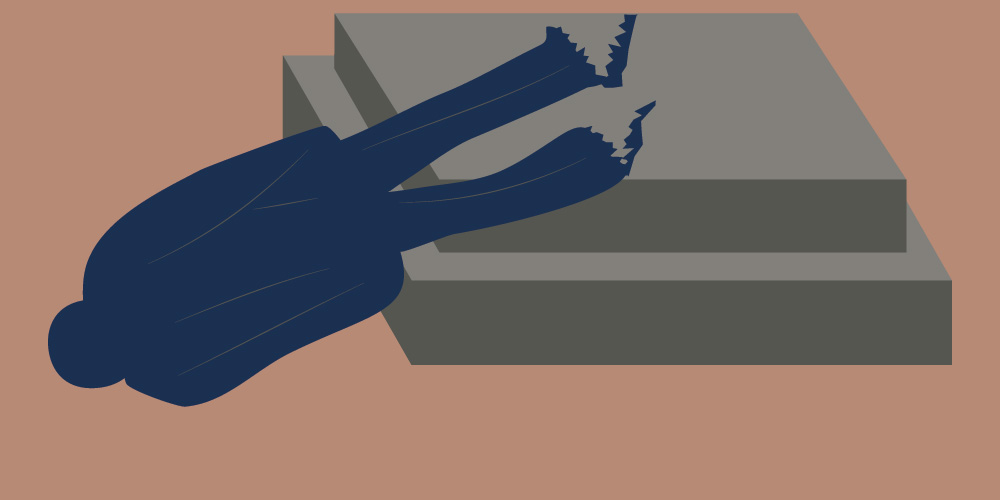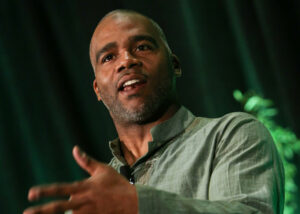Psalm 8: Tearing Down & Building Up

In this brief reflection, written during the early months of the recent pandemic, ibrahim abdul matin (of blessed memory) reflects on the glory of God, the majesty of God’s handiwork, and our role as God’s “stewards” of creation.
 In the Muslim tradition, the ancient figure of David is remembered as a shepherd, warrior, king, and prophet. Given the unusual range of roles he played, it is safe to say that this individual gained an understanding of the human condition few are ever able to experience. It is this kind of panoramic perspective or vision that allowed Prophet David, by the grace of the Creator, to have received the revelation that we call in Arabic the Zabur, or what is known in English as the Psalms.
In the Muslim tradition, the ancient figure of David is remembered as a shepherd, warrior, king, and prophet. Given the unusual range of roles he played, it is safe to say that this individual gained an understanding of the human condition few are ever able to experience. It is this kind of panoramic perspective or vision that allowed Prophet David, by the grace of the Creator, to have received the revelation that we call in Arabic the Zabur, or what is known in English as the Psalms.
We could certainly use some prophetic vision right now!
We are living in an unprecedented moment in which we are dealing with a global pandemic and a national social uprising. As part of this uprising, we are witnessing the toppling of public monuments. These monuments include physical markers like those celebrating chattel slavery and Confederate “heroes,” but also other pillars of society that have been deeply damaged by white supremacy.
But as we witness the tearing down of these modern idols, we also need to ask what comes next. Can we imagine a new national landscape that is more just, more inclusive, and more sustainable?
At the turn of the last century, the great cities of the United States underwent a vast transformation. They added public art, cultural institutions, and designs for how large and dense populations could flourish in these growing urban environments. Today, we need a new movement to reimagine how our cities should be organized and adorned to speak to our highest ideals and priorities, including our relationship to the earth.
Psalm 8 speaks of the glory of God, the majesty of God’s handiwork, and our role as God’s “stewards” of all creation. It has been said that Prophet David chanted the psalms using seventy different melodies (a number often used to represent universality and inclusivity) and that he was joined in spontaneous worship and song by the trees, flowers, and animals when he walked in the mountains praising the Creator. And when he was near the sea, the fish, the waves, and even the rocks would resound in praise.
Is the natural world resounding in praise now? Is it crying out in lament? Or is it actively rebelling against us?
Our immediate existential threat is an invisible-to-the-eye organism attacking our bodies, ravaging our lungs. All of the walls, guns, and monuments we have built so furiously over the last many decades cannot protect us from this lethal virus. It is not yet clear exactly what the relationship is between the current pandemic and widespread environmental degradation, but this is the time to think deeply about how we interact with the rest of nature.
What kind of country, what kind of world, do we want to inhabit—and do we want to hand over to or children and grandchildren—as we struggle for our physical and social well-being? If radical change is what we seek, what comes next?
These are the questions that have been preoccupying me as a Black man, as a Muslim, and as an environmental activist and urban planner. Can we begin to think holistically about our relationship to one another, to creation, and to our “Lord and Sovereign.”
Psalm 8 is a powerful reminder that as we dismantle the idols of today and work to refashion society, we cannot just tear down but also must consider how to rebuild with greater care, humility, and gratitude. We need to commit ourselves to treat one another and the earth better than we have ever done before.
Like Prophet David did so long ago, let us pray—with all of creation—that we can do so.
ibrahim abdul-matin was an Interfaith America Senior Fellow. He also served as a Senior Fellow with New Yorkers for Clean Power and on the NYS Advisory Board of the Trust for Public Land. abdul-matin authored the critically acclaimed volume Green Deen: What Islam Teaches About Protecting the Planet.
Questions for Reflection
- Are there specific places in your neighborhood, town, or city that you consider sacred? If so, why?
- If you were invited to build a new monument in your school, town hall, or another public venue, what would it be? Why?
- Are there specific questions or insights you carry with you today from the early days of the pandemic?

